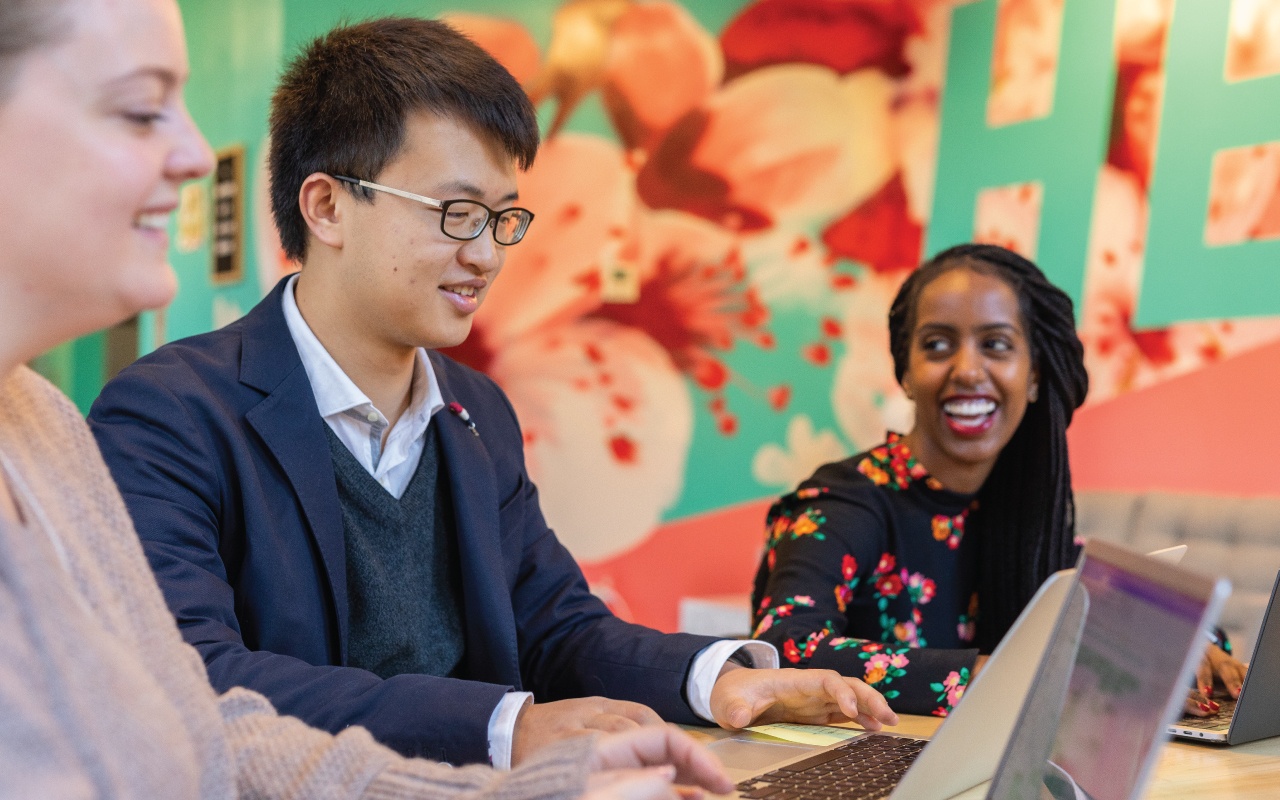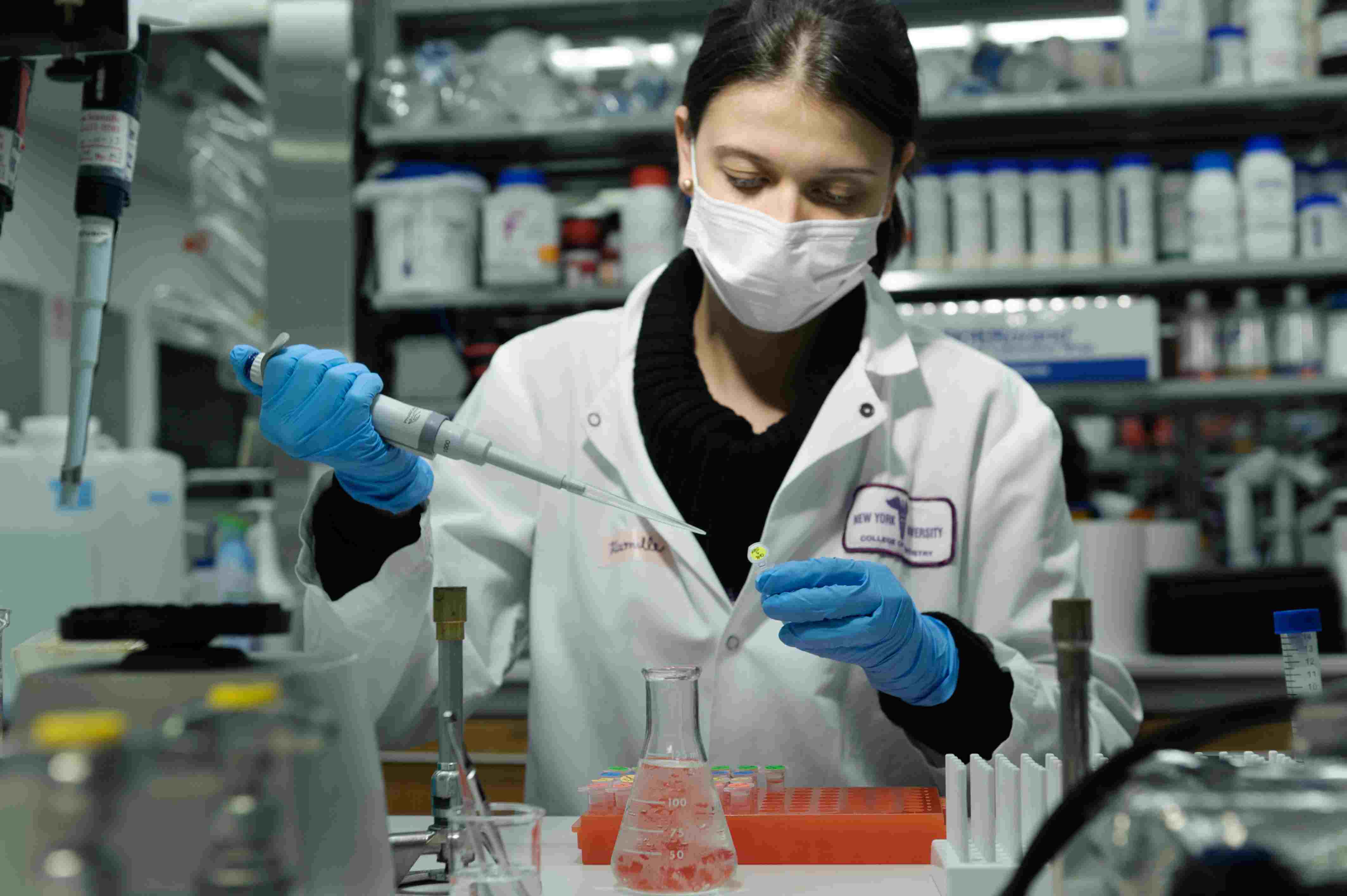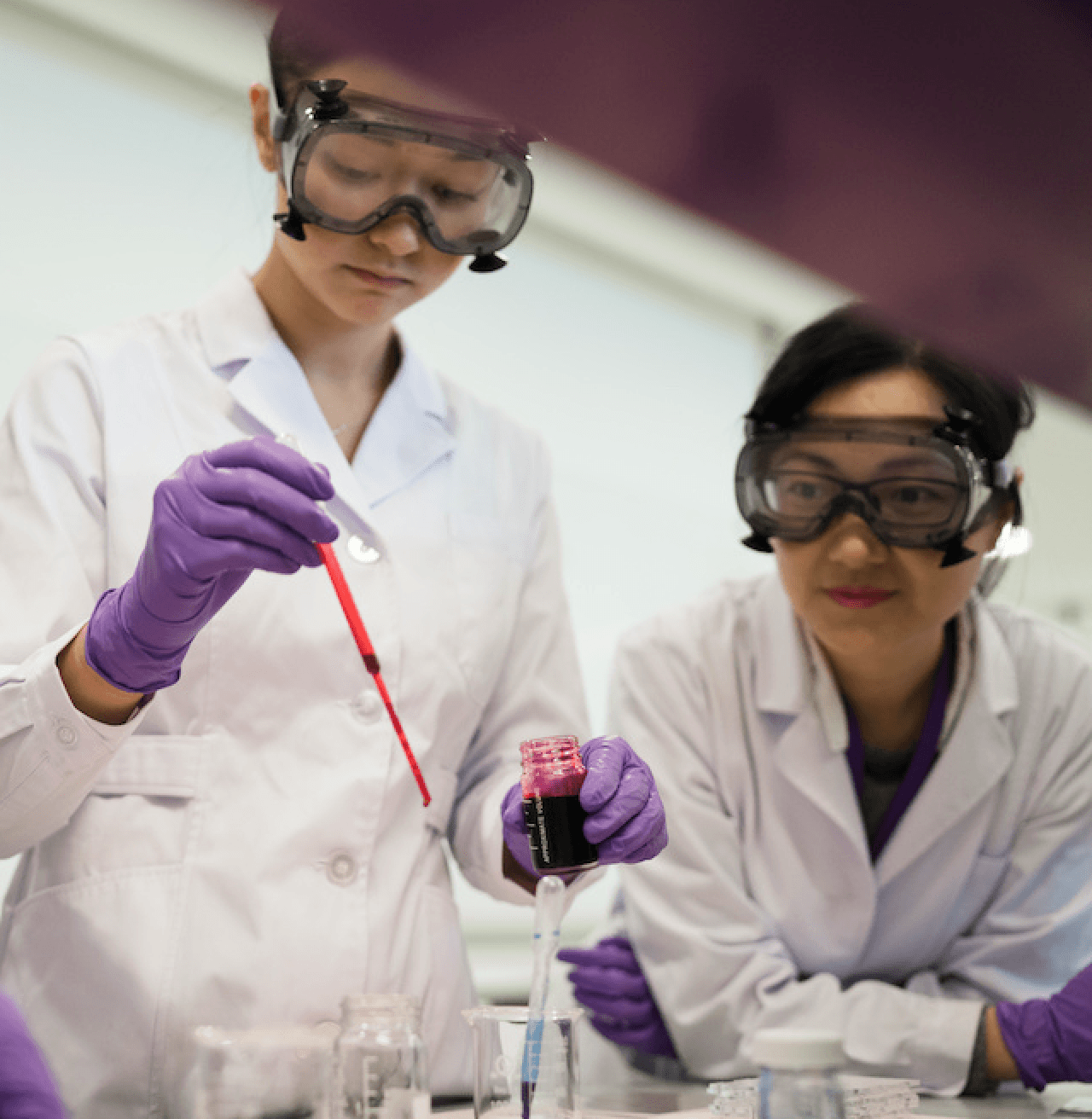Published January 05, 2022
Undergraduate Engineering Research: You Can Do It
In a field like engineering, theory is only part of the equation. It’s diving into real-world problems and solutions that propels students to the top. At the NYU Tandon School of Engineering, undergraduates have unparalleled access to rigorous engineering research led by world-class faculty in ultramodern labs. Students can participate in Vertically Integrated Projects—multiyear, multidisciplinary projects in anything from biomedicine to artificial intelligence to aerospace. And Tandon also offers the Undergraduate Summer Research Program. This program allows students to work alongside faculty mentors for 10 weeks, then share their research with a diverse audience.
NYU Hyperloop
Vertically Integrated Projects
Work alongside an inspiring professor for your entire academic career. Revisit a topic you’re passionate about semester after semester while approaching it from new angles. Share your expertise in teams that bridge electrical engineering, computer engineering, and integrated digital media. Explore hyperloop design. Construct 20-foot load-bearing steel bridges. Launch reusable rockets. Create 3-D printing filament from recycled plastic bottles. Learn from older students, then transition into a mentor role.
These opportunities fall outside what’s typically offered in a classroom setting. But all NYU undergraduate students have the chance to dive into practical, large-scale engineering research through Tandon’s Vertically Integrated Projects (VIP). Any student can become a part of a multidisciplinary VIP. The teams comprise other undergraduates, the occasional graduate student, and a VIP faculty adviser, all engaged in diverse project-based learning courses.
After applying at the beginning of the semester, admitted students usually dedicate one credit per semester, or four hours per week, to their VIP team for at least three semesters. This time commitment includes weekly meetings, working sessions with team members, independent tasks, documentation, and more. The program supports more than 30 project teams, consisting of more than 400 students per year.
RoboMaster: Team UltraViolet
From Robots to Racing to Virtual Reality
Engineering research projects span diverse fields of study. They also inspire collaboration and competition around the world and result in real-world technology and solutions. One group, RoboMaster: Team UltraViolet, develops projectile-launching robots capable of moving across difficult terrain to compete in the international RoboMaster University League. The team tackles engineering, computer science, and business challenges as they design, program, and test all of the elements involved in bringing a functional robot to life.
Other projects include creating an innovative and sustainable concrete canoe, channeling engineering theories and advanced concepts into the perfect off-road racing machine, and exploring the scientific potential of shared experiences in virtual reality. Just this summer, Sixth Sense’s machine-learning system took second place at the VIP Consortium Innovation Competition. Designed to help people with visual impairments, it was the only US-based project to place at the competition. While VIP teams explore a diversity of subjects and produce a variety of end products, any VIP experience uniquely prepares students to enter the industry with newfound problem-solving and collaboration capabilities.
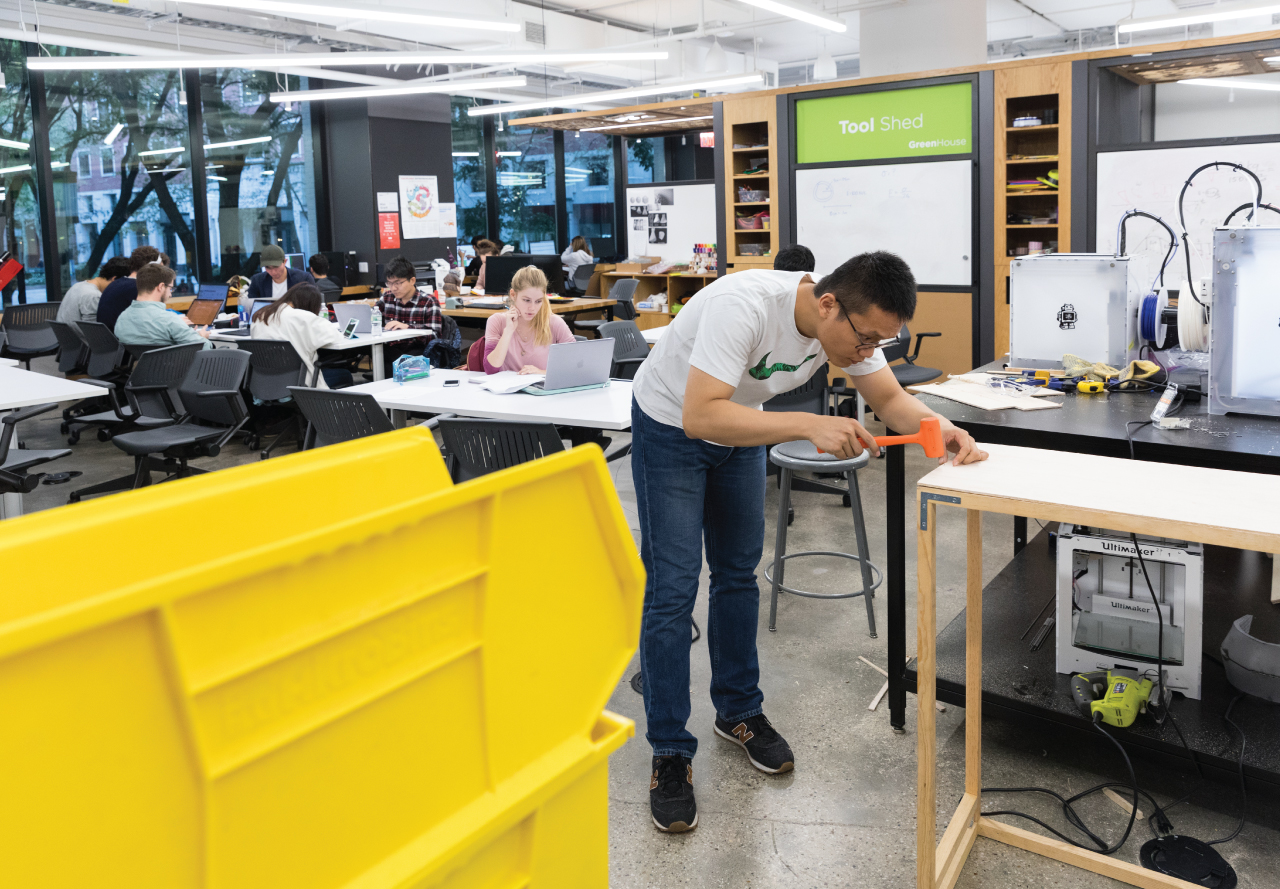
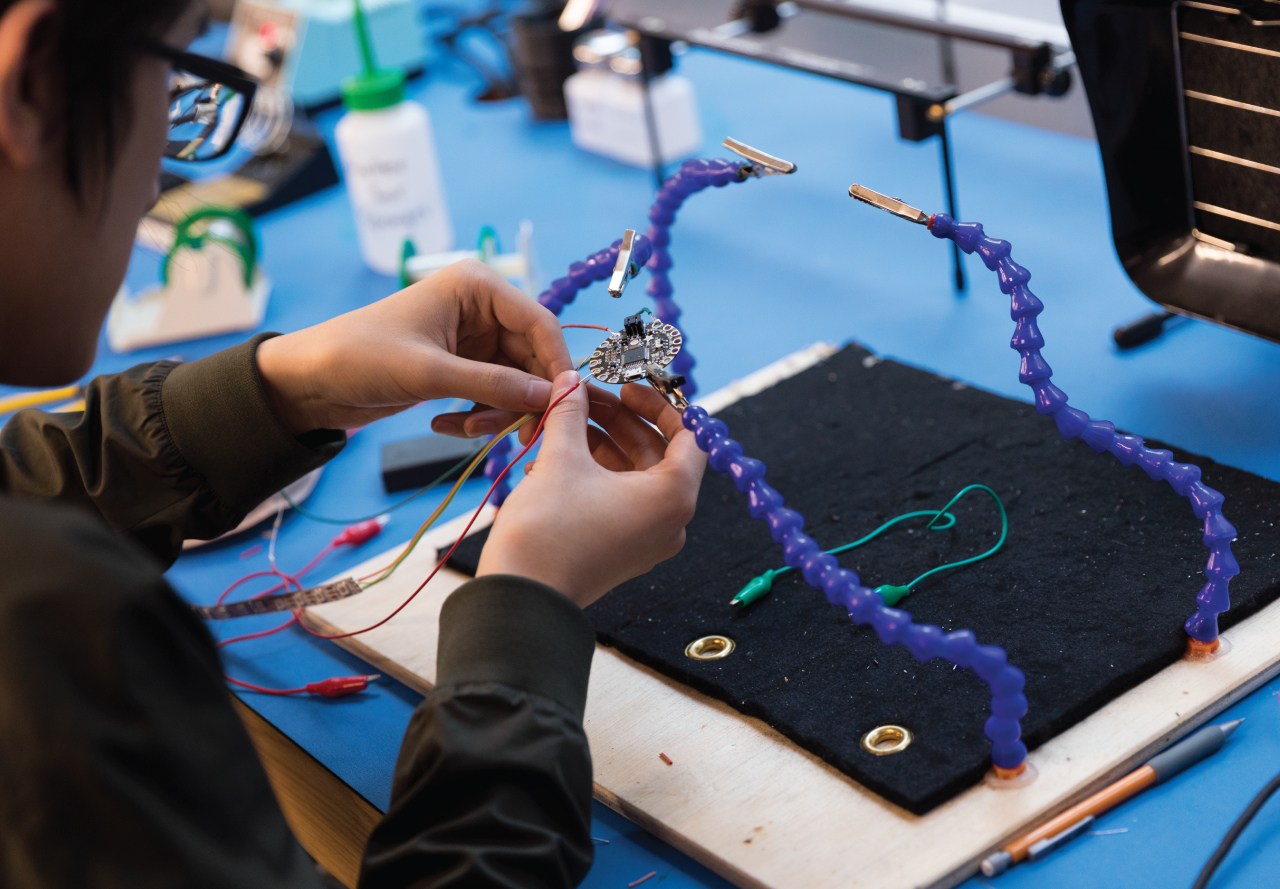
The Undergraduate Summer Research Program
The opportunities for engineering research at Tandon don’t stop at VIP. For students looking to explore additional topics or dig into their areas of interest, the Undergraduate Summer Research Program (UGSRP) offers them another chance to work in the labs of engineering faculty members. For 10 weeks, students work alongside expert mentors on exciting real-world research topics. At the same time, they participate in seminars presented by distinguished administrators and academics. In years past, UGSRP has included a Student to Scholar workshop series. There have also been graduate school information sessions, résumé and cover letter workshops, PhD research panels, and more.
At the end of the program, students share their work at research presentations and poster sessions before audiences from all disciplines and backgrounds. In addition, the abstracts are published and presented to incoming first-year students at Welcome Week, which all adds up to excellent preparation for a career in research.

